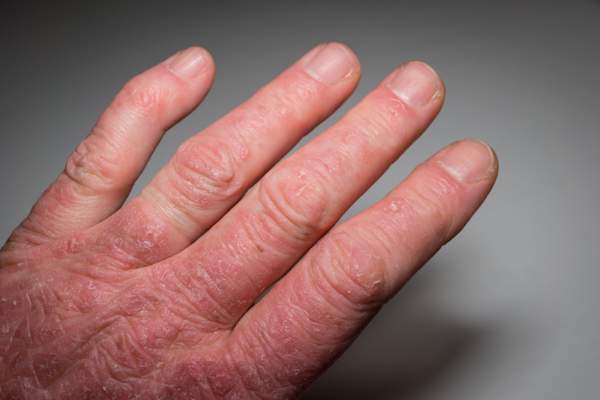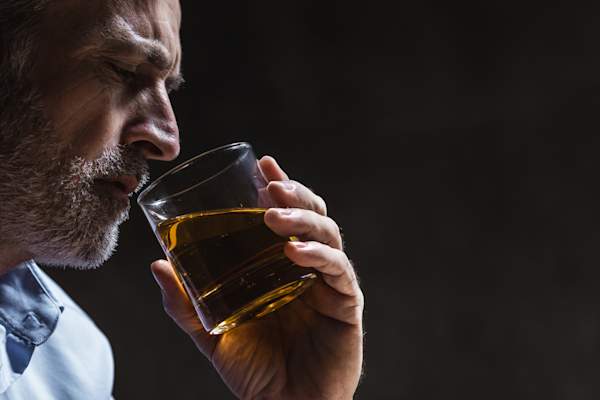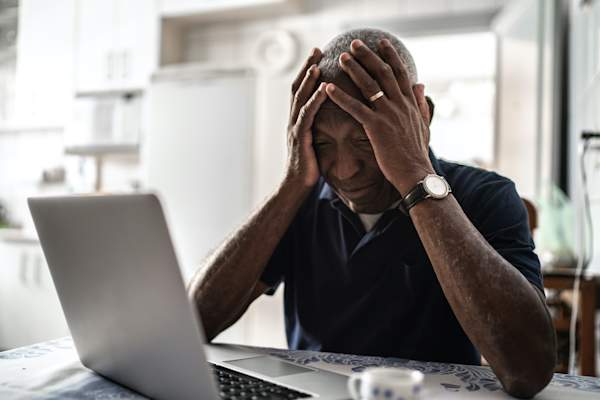
Smoking
PsA is a disorder where the body’s immune system attacks healthy tissue it mistakes for a threat. Smoking can put that attack into overdrive. “It’s thought that smoking makes the inflammatory disease harder to control and more painful,” explains Susan Goodman, M.D., a rheumatologist at Weill Cornell Medicine in New York City. In fact, research shows how smokers with PsA tend to have worse overall pain than never-smokers. A cigarette habit also “decreases the benefits of treatment, though it’s unclear why,” adds Dr. Goodman, who urges smokers to do everything in their power to quit.
Being Overweight
Overweight or obese individuals who have PsA tend to experience more intense pain and swelling than those who are at a healthier weight, research shows. Fatty tissue in the body releases inflammation-causing proteins, and when excess fat is present, it can exacerbate the inflammation from psoriatic arthritis. Moreover, “obesity increases stress on joints and decreases the beneficial response to PsA treatments,” says Dr. Goodman. The good news? Research shows how shedding just 5% of one’s weight is enough to lower pain PsA levels.
Neglecting Other Health Conditions
More than half of people with PsA have at least one other medical condition, and 40% have three or more, reports the Arthritis Foundation. “It’s important to pay attention to these conditions, as they are significant contributors to the successful treatment of psoriatic arthritis,” says Charis Meng, M.D., a rheumatologist at the Hospital for Special Surgery in NYC. What’s more, not treating other health concerns can make PsA pain worse. Depression and anxiety can affect pain perception, quality of life, and treatment outcomes of PsA, and recent research found that people with fibromyalgia and PsA have worse joint inflammation and pain.
Drinking Too Much
Excessive drinking increases your risk of PsA—and can worsen PsA pain. “Many medications used to treat PsA and it’s comorbidities predispose people to liver enzyme abnormalities,” explains Dr. Meng. “Drinking alcohol can exacerbate liver problems, which may then limit the use of the medications used to treat PsA, ultimately leading to more pain.” Since meds and alcohol are both metabolized by the liver, toxicity risk rises when you hit the sauce. According to Creaky Joints, you don’t have to go teetotal, but try to keep it to the occasional beer or cocktail—and never miss regular lab tests to detect liver abnormalities.

Ditching Exercise
Pain, swelling, stiffness, and fatigue are hallmarks of PsA—and not exactly conducive to strenuous workouts. In fact, the Centres for Disease Control and Prevention (CDC) notes that the fear of causing or worsening pain is a big barrier to exercise for those with arthritis, which may help explain why up to 47% of folks with arthritis are considered inactive. Not good, especially since the CDC also reports that being physically active can reduce arthritis pain and prevent or delay arthritis-related disability. The National Psoriasis Foundation suggests engaging in activities like walking, cycling, swimming, yoga, and tai chi.
Exercising With Active PsA Symptoms
However, if you’re experiencing a painful PsA flare-up, it’s time to dial back the exercise. “We don’t recommend active exercise during a flare, since it’ll worsen pain,” says Dr. Goodman. “Instead, focus on a passive range of motion exercises, which is always good and can help you maintain flexibility while [your] PsA is being brought under control.” This approach involves another person, like a physical therapist, moving or stretching a part of your body for you, which can help increase blood flow to the muscles without putting stress on the joints.
Too Much Stress
For many people with PsA, stress can literally hurt. “Stress can trigger an immune system response that increases inflammation, which is why stress can contribute to the symptoms in some people with psoriatic arthritis,” says Dr. Meng. “If you are feeling stressed, it’s important to discuss this with your physician who can suggest things like diet changes, social support, and relaxation techniques to help.” To wit: A report in the Journal of Psychosomatic Research found that people with arthritis experienced significant improvement in pain intensity after eight weeks of following a daily mindfulness-based stress reduction program.

Dry Skin
Dry, indoor heat, long hot showers, and additional COVID-induced handwashing are no friends to the symptoms of PsA. Each draws moisture from the skin, aggravating the scaly, itchy, painful red patches of psoriatic arthritis. To help, “apply bland, fragrance-free moisturizer to your body regularly and liberally, especially right after a shower, since warm, moist skin absorbs the product better,” says Lindsay C. Strowd, M.D., assistant professor of dermatology at Wake Forest School of Medicine in Winston-Salem, NC. In addition, The National Psoriasis Foundation advises using lukewarm water, limiting showers to 10 minutes or less, and moisturizing after washing your hands.
Poor Sleep
About 68% of people with PsA report having poor quality sleep, according to a study in Reumatologia. Research shows that even short-term sleep issues can spark the release of proinflammatory substances in the body, which are associated with chronic pain and decreased quality of life. While pain begets sleep loss, and sleep loss begets pain, don’t take it lying down. People with PsA have an increased risk of sleep apnea (when you repeatedly stop breathing for short spells during sleep). If that’s you (or if you’re plagued with other sleep issues), see a sleep specialist for better ZZZs—and potentially less pain.
https://www.healthcentral.com/slideshow/psoriatic-arthritis-what-makes-pain-worse
No comments:
Post a Comment